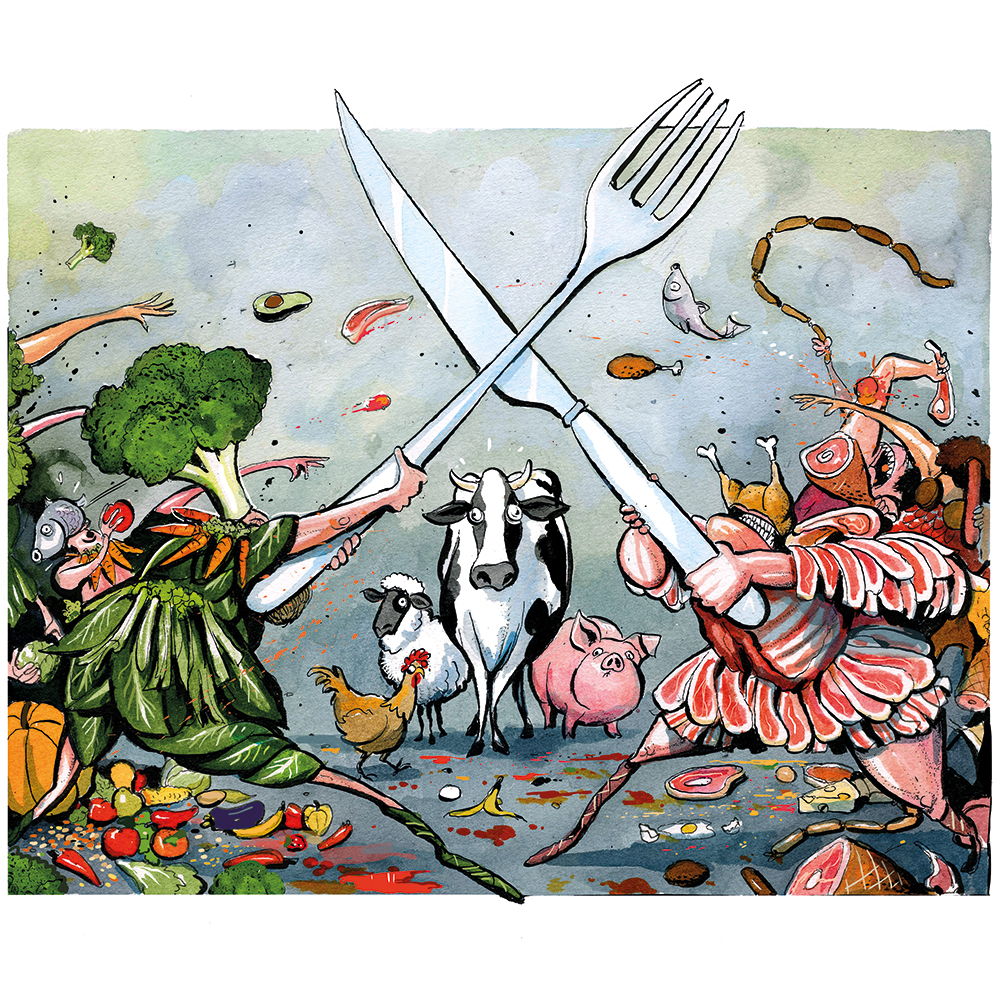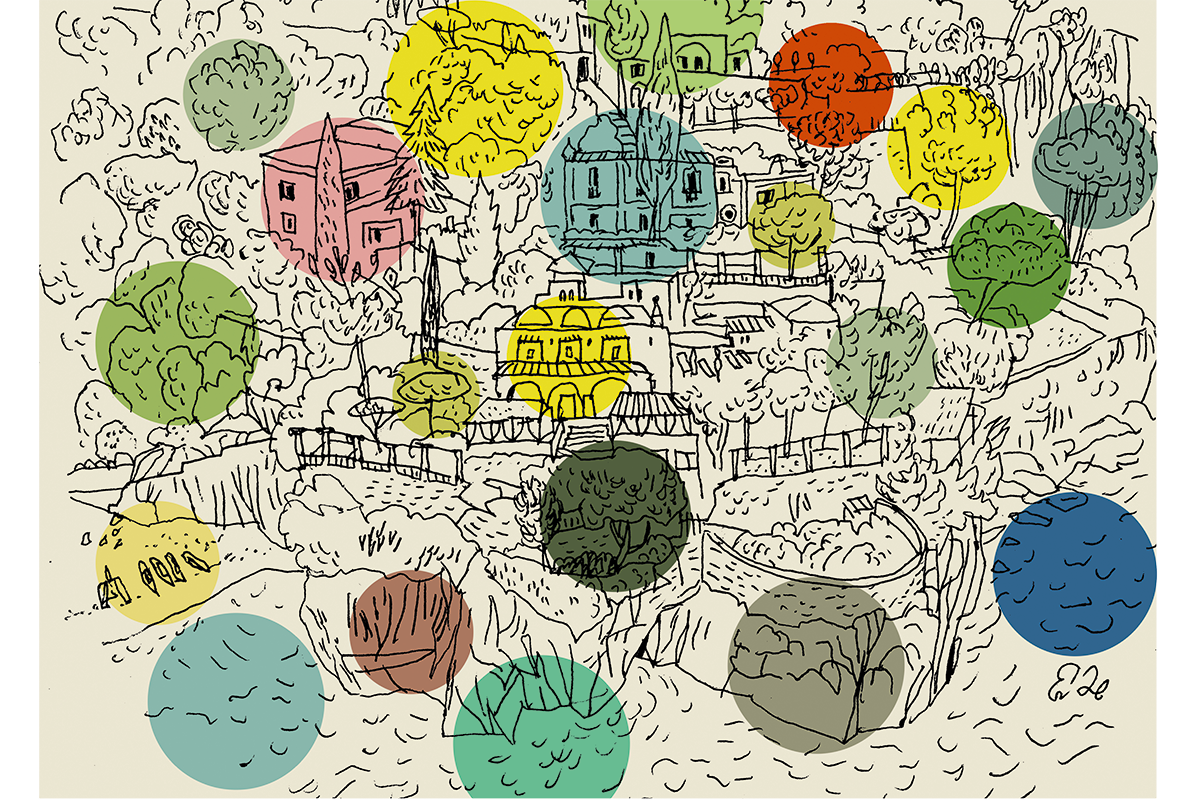Eleven Madison Park, perhaps the finest of New York’s fine-dining establishments, is adding select meat dishes back to its prix fixe menu after an ill-fated foray into veganism after the pandemic. Chef Daniel Humm announced the move in the New York Times, citing all the predictable reasons for ditching a plant-based menu.
First and foremost: the finances. “It’s hard to get 30 people for a corporate dinner to come to a plant-based restaurant,” Humm told the Times, noting the negative feedback from diners over the years. Still, he framed the move in moral terms, explaining how he didn’t “realize that [the vegan menu] would exclude people.” To this, I can only muster an eye roll.
Couching hard-nosed business calculations in a moral epiphany feels apt for Humm, now more celebrity food guru than elite restaurateur, who spends his time whining about the fragile “global food system” and “social inequalities” in between sherpa-guided meditations in the wilderness. There’s an implicit dig in the framing – how could I expect that my clientele just wouldn’t be as socially conscious as I am? – but Humm was about the only one surprised.
EMP went vegan in 2021 as urban elites rushed to out-do each other in the embrace of social causes. Critics and diners alike were skeptical, the Times notes (the paper gave a lukewarm review of the “plant kingdom’s uncanny valley” at the time). Yet Humm still clung to veganism over what he called the “anxiety” of being labeled a “hypocrite.”
Eleven Madison Park, as with all elite institutions, can get away with stunts like veganism for a time
Political pundits speak endlessly of institutional inertia, the inability of a government, bureaucracy or corporation to shift once set in its ways. Less discussed is the all-too-human inertia that typically accompanies it. New social identities were formed in the Covid era; defending “the Science,” rejecting “whiteness,” being an “ally” and fighting for “climate justice” – all necessary components of being a Good Person. Of course, it was mostly phony; the laptop class didn’t simultaneously discover the gospel of mid-century leftism, but was simply following the herd. Yet the proclamation of earnest concern was itself a critical part of this identity and, even as vibes shift and fads wane, it’s only human to resist admitting what a phony you’ve been all along.
Eleven Madison Park, as with all similarly situated elite institutions, can get away with stunts like veganism for a time by relying on their cultural clout. The Times sets the tone of legacy media discourse, the pedagogies of Harvard and Yale trickle down to lesser universities seeking to emulate elite sensibilities – and as this particular restaurant goes, so goes the restaurant industry. After all, Humm’s consistent three Michelin stars are viewed with envy by elite conclaves from New York to Shanghai, and earning the rank of World’s Best Restaurant in 2017 only added to its already inaccessible prestige. Of course other restaurants have followed its lead.
Over the past few years on the New York restaurant scene, it’s been hard to miss the explosion of pretentious veganism among far lesser establishments than Eleven Madison Park. After what critics dubbed Humm’s “watershed moment,” one can’t be too careful reading over a dimly lit menu – or else one runs the risk of unsuspectingly ordering a lab-grown entrée (which advocates have delicately and rather grimly branded “plant-based protein”).
New York’s 1,165 “vegan-friendly” restaurants range from fine dining to upscale casual and even fast food, but the city’s vegan scene pales in comparison to what you’re likely to find even in a provincial American supermarket. A typical big-box grocery store now stocks more than 100 “plant-based” options, with 65 percent sneaking at least one vegan option into the meat aisle. Good luck walking into Whole Foods without accidentally coming home with some seitan “chicken” or butter-free cookies.
But as the fates of academia and media show, broadly unpopular fads can only coast so far on clout before the institution itself takes a hit. The Ivies, for centuries upheld as the gold standard of education, have never experienced more scrutiny than they do now in the age of diversity, equity and inclusion. Mainstream media outlets will be the first to tell you of the existential threat they face as Americans turn to independent outlets and podcasts for more “honest” news. And as for the restaurant industry, it’s adapt or die, as the saying goes – and Humm has clearly chosen survival.
Besides a handful of hippies, the market just isn’t there yet for such a vast variety of vegan menus
The push for veganism isn’t going away entirely; lab-grown-food technology will continue to improve and both committed ideologues and savvy investors will keep seeking larger inroads. But just as the Times, from its vaunted position, can effectively signal to the liberal establishment when it’s gone too far and must pull back, so too can Eleven Madison Park send the same message to the restaurant world. Humm’s embrace of veganism served as a pivotal moment for the industry in 2021, but his reversal may now send the opposite signal for the future.
Besides a handful of hippies, the market just isn’t there yet for such a vast variety of vegan menus. And restaurants will now get the overdue memo that it’s socially acceptable to admit the obvious.
This article was originally published in The Spectator’s September 29, 2025 World edition.























Leave a Reply